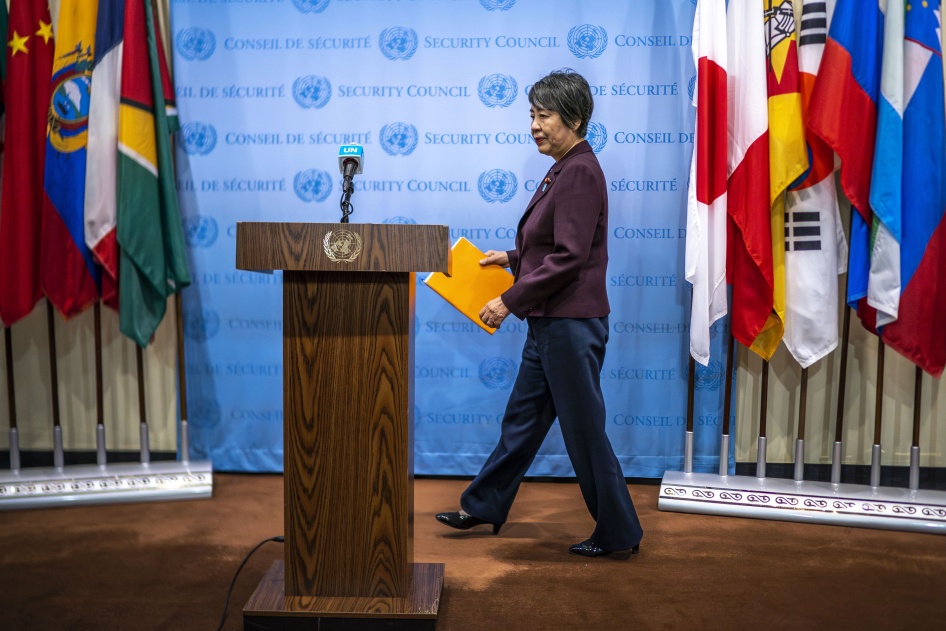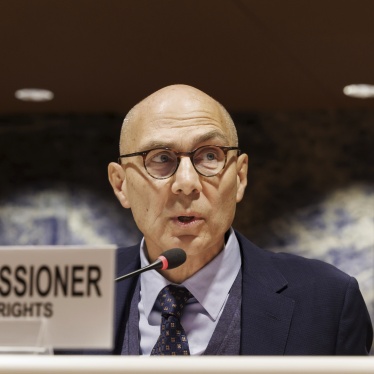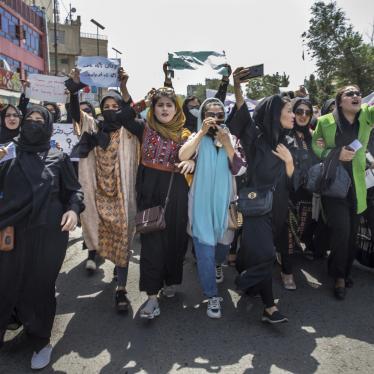Last month, discussing Japan’s foreign policy, Prime Minister Fumio Kishida said that “our role is to actively shape an Asia and a world where human dignity is respected, and a free and open international order based on the rule of law is maintained and strengthened, ensuring that we pass these values on to future generations.”
This is a pivotal year that will test those aspirations and Japan’s commitment to human rights as the country sits on both the United Nations Human Rights Council and the U.N. Security Council.
Meanwhile, in Asia at large, human rights remain under steady assault from abusive governments.
A military coup and spiraling conflict in Myanmar have claimed thousands of civilian lives and displaced more than 3 million people. The Taliban’s return to power in Afghanistan has intensified widespread human rights violations, normalizing severe gender discrimination and the persecution of women and girls.
One-party rule in North Korea, China and Vietnam has long deprived their populations of freedom of expression, association and assembly. Meanwhile, entrenched political interests in Indonesia, Thailand, Cambodia, India, Bangladesh and Pakistan have weakened civic institutions and electoral processes.
Nearly everywhere in the region, the space for civil society and media freedom is shrinking.
Japan should use its seats on U.N. bodies effectively and actively show leadership to protect human rights by building strong coalitions with other like-minded governments. Western countries like the United States and United Kingdom are focused on their own domestic issues in the lead-up to national elections. They have also lost credibility due to their selective application of human rights principles.
While Japan has clout as a well-established, stable and prosperous Asian democracy and as a generous development donor, it uses that leverage too sparingly and selectively. The government should do more to address human rights concerns across the region, starting with mobilizing action on North Korea, China and Myanmar.
North Korea represents one of the world’s worst human rights situations — right on Japan’s doorstep. Furthermore, since the COVID-19 pandemic, Pyongyang has sealed its northern border, exacerbating the country’s isolation and worsening abuses.
Given the long history of North Korea’s abduction of Japanese citizens, Japan previously led a successful call at the Human Rights Council for a commission of inquiry into crimes against humanity in North Korea.
It has been 10 years since the commission published its landmark report. In the decade since, not only has Pyongyang failed to implement the commission’s recommendations, but has accelerated its nuclear weapons program, risking international peace and security in defiance of the U.N. Security Council.
In March, Russia vetoed the renewal of a panel of experts' mandate to monitor the enforcement of the Security Council’s sanctions against North Korea. While the veto was an attempt to impair the ability of governments to receive updates about the regime’s weapons programs and human rights and humanitarian situation, it actually provides an opportunity to strengthen the U.N.’s scrutiny.
Japan should work with South Korea, the U.S. and others to bolster the link between security and rights, recognizing that North Korea’s repression exacerbates the humanitarian crisis and is what enables the weapons program to exist. These governments should lead efforts at the U.N. General Assembly to commission an impartial and independent expert team to address the links between North Korea’s extensive record of human rights abuses, the threat that the regime poses to international peace and security and its illicit activities in defiance of U.N. resolutions.
Meanwhile, the Chinese government has evaded accountability for its serious human rights abuses such as the arbitrary detention of ethnic Uyghurs and other Turkic Muslims in Xinjiang, forced relocations and religious repression in Tibet, the dismantling of democracy in Hong Kong, and widespread censorship, surveillance and repression nationwide. In August 2022, the U.N. human rights office issued a damning report concluding that alleged rights violations in Xinjiang “may constitute crimes against humanity.”
But in the two years since, there has been no follow-up because Beijing refuses to acknowledge the abuses and has railed against efforts to discuss the matter at the Human Rights Council.
As a first step, Japan should work with a small group of countries to lead efforts for a joint statement at the Council condemning human rights violations in China. This would send a message that powerful countries that commit crimes cannot avoid scrutiny.
Japan should also urge U.N. High Commissioner for Human Rights Volker Turk to brief the Human Rights Council on updates since the U.N. report’s publication and whether China has implemented the recommendations.
Shifting to Myanmar, the military junta there has been committing crimes against humanity and war crimes since the 2021 coup. Much of the country is an active war zone, with civilians caught in the crossfire. Earlier this year, the junta introduced conscription, which it has carried out abusively, and thousands have fled to avoid recruitment.
Stemming the flow of weapons and revenue to the military is key to compelling the junta to change course.
Japan has already condemned indiscriminate airstrikes and attacks on civilians in Myanmar and criticized the junta’s failure to release political prisoners. But it needs to follow up. Tokyo should support the U.K. and other like-minded governments at the Security Council in their efforts to impose an arms embargo on Myanmar, refer the situation to the International Criminal Court and impose targeted sanctions on military-owned companies.
Japan should also suspend all nonhumanitarian aid to Myanmar, since at least one Japanese company is continuing to make payments to a junta-owned conglomerate. Tokyo should send a clear message to its firms to comply with targeted sanctions on Myanmar-listed entities.
More broadly, Japan needs more diplomatic tools to protect human rights in foreign policy. For starters, the country should pass legislation to authorize targeted sanctions, including visa bans and asset freezes, against people implicated in serious human rights violations. Such a law would provide the flexibility to target individual rights abusers without broadly punishing countries’ populations.
Japan should also introduce a human rights due diligence law that would require companies to address rights violations such as forced labor in their supply chains. Some Japanese lawmakers have already recommended these changes, as Japan is the only member of the Group of Seven without such laws. Finally, the government should reinstate the role of human rights adviser to the prime minister — a position that Kishida created in 2021 but abruptly abolished last September.
Japan has strong trade and development links with many countries in the Global South, especially in Asia, and it has always prioritized engagement and dialogue as part of its foreign policy.
Still, Japan can do more to leverage those relationships by making consistent principled human rights arguments in both public and private diplomacy, ensuring that Japanese diplomats and senior officials meet regularly with civil society groups and encouraging other governments to work together to defend human rights.
Asia faces enormous challenges. But working with like-minded countries to combat repression and ensure rights protection is the best way of securing its future as a stable, prosperous region with transparent and accountable governments.
Japan should make the most of its U.N. seats and show leadership in building broader coalitions of governments to safeguard human rights.








